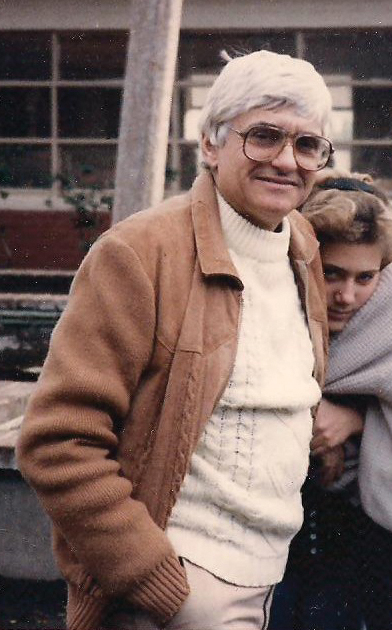Correction: The original version of this article contained an error. Because of Leo Snowiss’ constant blood pressure fluctuations, Snowiss would sometimes have to sit or kneel down while walking.
Leo Snowiss, professor emeritus in the political science department and former associate dean of the Graduate Division, died Jan. 4 from complications of congestive heart disease. He was 76.
Snowiss, a 29-year veteran of the department, was known for his commitment to teaching, often placing student learning above his own writing.
Over the course of his tenure, Snowiss taught lectures and developed a number of small seminars on topics such as the Iran-Contra affair. He even continued to teach during his time as an associate dean, said David Rapoport, a professor emeritus of political science and one of Snowiss’ colleagues.
In the classroom, he encouraged his students to understand both the American political process and the psychological motives behind political divisions in Congress, Rapoport said.
Snowiss’ classes were tough, even for his son.
“I got a “˜B-,'” Mark Snowiss said, laughing, when he recounted taking his father’s summer course. “It was wonderful for the two of us ”“ we always had lunch together after class.”
Aside from his teaching, Snowiss helped develop the undergraduate political science honors program and freshman seminars, said former Chancellor Charles E. Young, one of Snowiss’ colleagues.
“He worked very hard to make sure the department kept students’ interests at the forefront,” Young said.
“He was a sympathetic, caring, understanding person who was very gentle with his relationships with others.”
These traits, along with his sense of humor and strong listening skills, earned him the respect of his students and colleagues, said Robert Gerstein, professor emeritus of political science.
Though Snowiss strongly articulated his opinions, he always maintained respect for others’ points of view.
“Leo was very special in terms of inducing you to say what you wanted to say,” Rapoport said. “Emotions that sometimes accompanied strong stances evaporated. You could discuss very intense subjects and never get upset.”
All the while, Snowiss battled a serious health condition. At 19, Snowiss contracted a rare disorder of the nervous system. He was given three years to live.
Ten years later, he was recruited by the UCLA political science department right after he received his doctorate.
During the initial talks, Snowiss was blunt about his health, telling the hiring committee he might not survive more than a few years. His honesty intensified the committee’s desire to hire him, Rapoport said.
The physical act of teaching was not easy. Because of his constant blood pressure fluctuations, Snowiss would sometimes have to sit or kneel down while walking. In class, he would elevate his foot on a nearby chair or desk to help with the pressure, Mark Snowiss said.
But Snowiss minimized the impact on his work and did not like to call attention to his illness.
“He had a passion and intensity to live,” Rapoport said.
Snowiss was born May 8, 1935 in Williamsport, Penn. After earning a bachelor’s degree from the University of Pennsylvania in 1960, he continued his studies at the University of Chicago, where he received his doctorate.
Immediately after graduation, Snowiss took a teaching position at UCLA.
In addition to his responsibilities as a professor, Snowiss was active in his community and served as the president of the Claremont Heritage preservation society. In this position, he led efforts to recognize his Claremont neighborhood as a national historic landmark based on the area’s folk architecture dating to the 1930s.
He was also involved with the State Bar of California’s Committee on Professional Responsibility and Conduct, which helps lawyers understand their responsibilities, and he advised law firms on high-profile cases as an expert with JurEcon, Inc., a Los Angeles consulting firm.
He is survived by his wife, Sharon; sons, Jonathan and Mark; daughter, Caroline; granddaughters, Ashlyn and Elena; and sisters, Faye and Susan.
